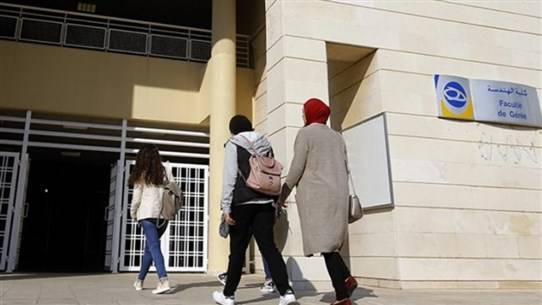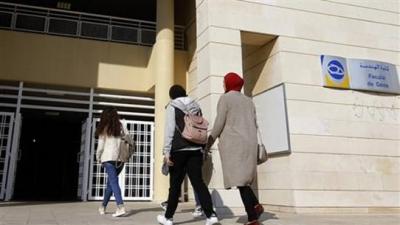The decision for in-person learning at the Lebanese University came as a surprise to many faculty members who chose to travel in search of social stability. Did these individuals actually achieve stability, or are they grappling with challenges that forced them to accept job offers abroad that they would not have considered in their home country? Generally, Lebanese university professors have a deep emotional connection to their institution. For some, the choice to "migrate" was not voluntary, and not everyone who left the university for opportunities abroad necessarily found what they were looking for. The available options often fell short of their aspirations and wishes. Some professors resigned and leveraged their experience to secure permanent contracts, relying on strong ties with French universities and research centers. Others managed to obtain temporary contracts lasting a year or two, while some clung to post-doctoral opportunities, which professors can pursue immediately after graduation and attaining their doctorate. There are those who went to teach at lesser-known private universities and schools, and others who solely secured "private tutoring" jobs. It is also possible for both partners of a married couple to be professors at the university, with one finding work, prompting them to leave together. Professional factors are not the sole motivation for establishing stability abroad, especially for those holding foreign citizenship; the quest for education and healthcare for their children often played a significant role in accepting any job, or even settling for unemployment benefits.
**Freezing Tenure**
Traveling professors report living in a real struggle between being content with a job opportunity that could enhance their performance and feeling scattered due to having lost their positions at the university. They are uncertain whether “freezing tenure” for one year—a measure taken by the university's administration to preserve professors' rights to return—is truly a legal step, given that no one guarantees them that. Especially since they have worked hard to achieve tenure at the university, which makes it difficult for them to abandon it so easily, despite the fact that the university did not retain those with experience and qualifications. This anxiety led some to submit requests for leaves of absence or unpaid leave for three or six months, risking the freezing of their tenure.
While central administration sources indicate that some traveling professors are hesitant to inform their directors of their choices or are opting for unpaid leave for only three months due to hopes for in-person education failing, the traveling professors themselves assert that leaving the university and traveling was not an easy choice. They were driven by social needs, even reluctantly. Had they known that the university administration would decide exclusively for in-person instruction, they would not have traveled. They believe that as the academic year begins, many irregularities and adjustments will surface due to the subjective handling of files related to traveling professors. “This is not new; a supported professor does not need to submit a leave of absence or freeze their tenure, as there are those who teach their courses and cover for them.”
**Migration Between Branches**
“There is no doubt that the university has lost many competent professors, especially from the Faculty of Science,” they say, as “we have been forced to migrate due to living conditions on one hand, and restrictions imposed by circulars that are not applied to everyone on the other.” Concurrently, many professors still in the country have been compelled to request transfers to branches closer to their residences, which have become distanced from the capital due to circumstances, leading to a wave of migration between branches. This trend, according to sources from professors here, will impart a sectarian and partisan character to branches more than ever before. “The danger lies not only in losing these professors but also in opening the door wide to new clientelism, specifically in the Faculty of Science, and to completely co-opting entire departments for a specific political party by hiring contracted professors, some of whom are aligned with the administration, and some of whom are new, all without announcing vacancies or going through thorough academic committees since time is pressing and does not allow for that. Professors were informed very late that this year's teaching would be in person.”
**Vacuum in Scientific Colleges**
The void created by the “migrant” professors is not as apparent in the humanities and social sciences faculties as it is in the scientific and applied faculties, where professors have built relationships with foreign universities over the years. In the Faculty of Letters and Human Sciences, the number of departures is minimal and can be easily filled internally by adopting a “streamlining” approach in the number of hours assigned to contracted instructors and reducing the splitting of classes. However, this is not the case in the Faculty of Science or the Faculty of Engineering, for instance, which have both lost professors who have accumulated extensive experience and possess specialized expertise.
The situation for remaining professors in Lebanon, who have not had opportunities for migration, is not different. Some left private universities to dedicate themselves to the Lebanese University but are now unable to regain their positions in private colleges after being blacklisted. Some professors chose to leave the university this year in search of stability elsewhere, like one social sciences professor who had contracted with the institute since the 2011-2012 academic year while simultaneously working for international organizations. However, he was not politically favored for tenure in 2014, although he maintained hope for tenure until the last year when he was compelled to make a choice. He noted that he will continue to teach one course to maintain his emotional connection with the university. However, this does not detract from the fact that some professors have chosen to pursue tenure at the Lebanese University, believing that their presence there today is more crucial than ever, a responsibility, and a necessary struggle to prevent its collapse.
**Central Administration: No Retreat from In-Person Learning**
The central administration of the Lebanese University appears confident that preparations are underway for the commencement of in-person academic learning. Sources state that diesel fuel has been secured for most faculties and complexes, along with stationery and examination papers. Meanwhile, they are announcing vacancies to secure substitute professors for those who have migrated and to fill gaps in specific subjects, such as data science in the Faculty of Media and some areas in the Faculty of Technology.
Sources indicate that the academic year has started in person at the Faculty of Agriculture at a 100% capacity, noting that the traveling professors from the Faculty of Engineering left a clear void, but it can be easily filled, as only eleven new professors have been recruited. They emphasize that there will be no retreat from implementing full in-person education in the faculty, allowing professors who have submitted requests for leave and wish to cooperate with the university to give their lectures online. The sources reveal that the proposed solutions were well thought out, respecting the rights of professors and students.
But what measures has the university administration taken so far to facilitate student access to the faculties? Sources deny that any international donor entities or Qatar have given a final answer concerning support for student transportation. All that the administration can do is focus on maintaining student housing, which will be closed for a month for renovations, after which it will reopen to receive students, noting that the housing can accommodate only about 2,000 students.




